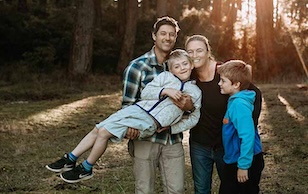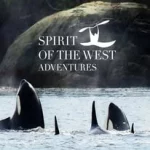A first big step is done – congrats!
- You chose a low-impact type of vacation, small group, self-propelled and the list goes on!
- You chose an environmentally conscious and responsible company – we promise to do our part, with environmental commitment being at the core of everything we do!
- You contributed to our Sustainability Fund ($25/person) which goes directly to local conservation and research organizations that work to protect the areas you will explore and fall in love with.
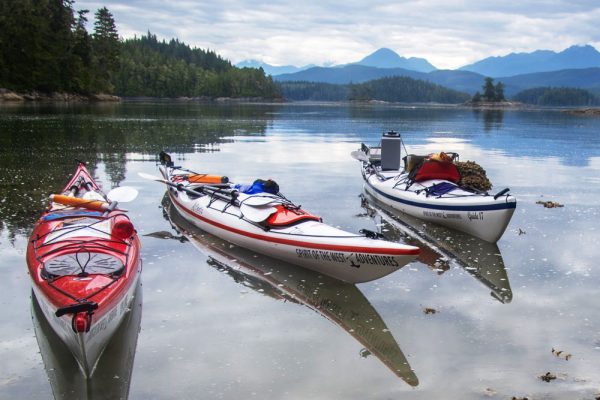
Why stop there? Want to do more?
Read on for more inspiration and learn how responsible travel from start to finish can be done in a more sustainable manner.
9 Ways to Shrink Your Carbon Footprint While Traveling in BC:
- Use the City Bus – While public transit in BC is not great, within Vancouver the bus and SkyTrain are fast, efficient, economical, and a low carbon mode of transport. Check out Translink.ca to plan your route or download their app.
- Take the Scenic Route – The bus is a more sustainable option than car travel and most flights. Buses on Vancouver Island follow the ‘Old Island Highway / The Ocean Route’ (HWY 19A) that hugs the coastline and stops in small communities. It’s a great way to let someone else worry about where you are going while you enjoy the view.
- Carpooling – Ridesharing is a great option to travel with a lower environmental impact. If you have additional space in your vehicle, consider signing up for your tour’s Group Carpool site. Upon registering for your tour you will gain access to your Group Carpool link and more information about this option.
- Pedal Power – There are a variety of bicycle-sharing programs in Vancouver and Victoria where you can borrow a bike for a nominal fee for several hours and return to one of the various depots around the city.
Responsible travel From YOUR Home to YOUR Tent
Inspiration, tips, and tricks to help you make sustainable choices when on the road.
Before you leave home:
- Take the Pledge – Created by the Wilderness Tourism Association of BC, to help set your intention for responsible travel every step of your journey. Download the PDF here!
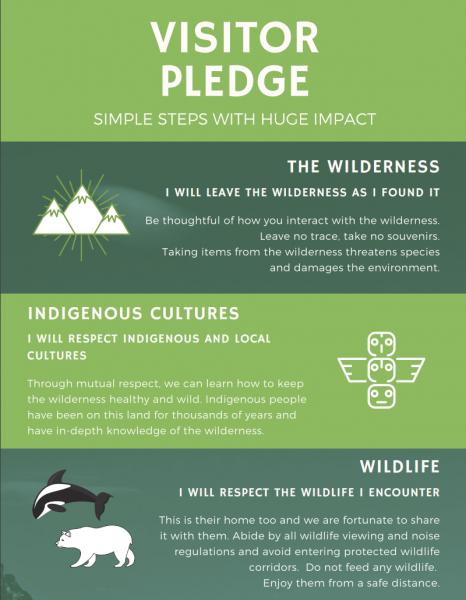
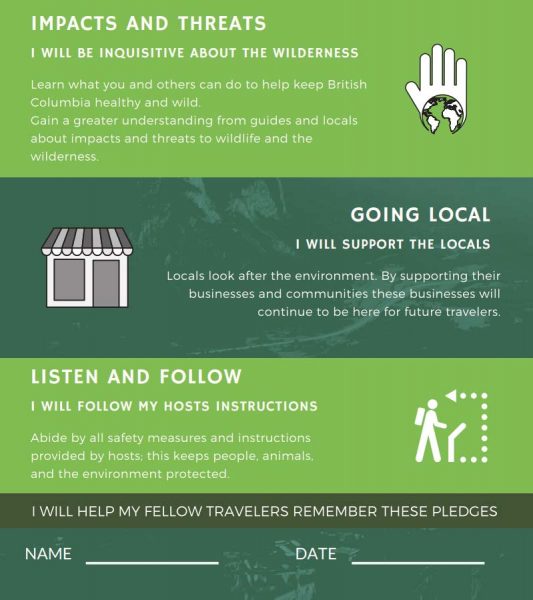
- Eat It Up – Try to empty your fridge the week prior to your departure to reduce food waste. Freeze and compost what you can and or share with friends/neighbours what you can’t.
- Turn It Down – Turn off/down your heat or air conditioning systems.
En route in British columbia
- Turn It Off – It is illegal to idle more than 3 minutes in many cities in BC. Turn off your car when it is safe to do so. This includes ferry lineups. With modern engines, it is also more fuel-efficient to turn engines off if idling for more than 30 seconds.
- Fishy Business – Look for Ocean Wise symbols on menus, which indicate it is a sustainable seafood option. If you do order salmon, ask if it is WILD Pacific salmon as this is a better option environmentally than farmed salmon.
- Don’t Get Too Excited – Don’t start your engine on the ferry or in line ups until the car in front of you turns on their engine and starts to move. Trust us you have time!
During your Stay in our local communities
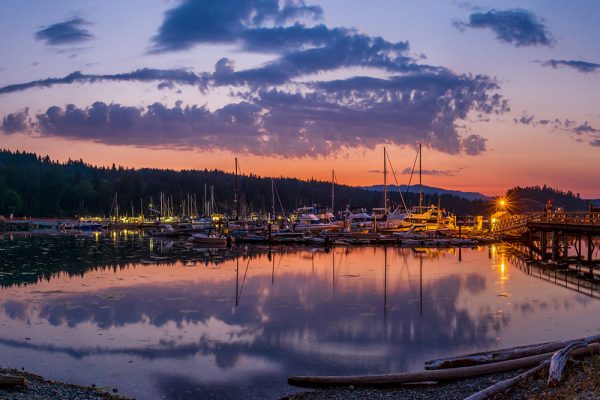 Quadra Island’s Marina
Quadra Island’s Marina
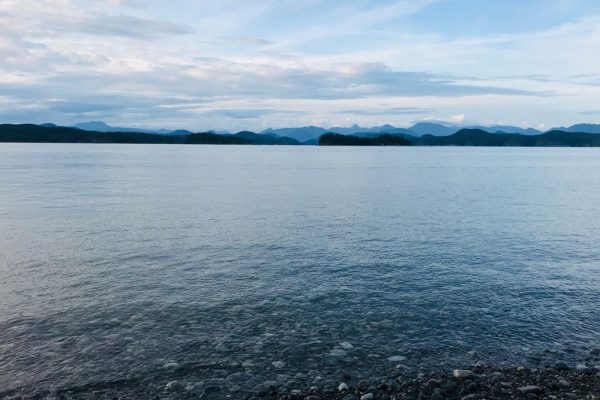 Clean water all around
Clean water all around
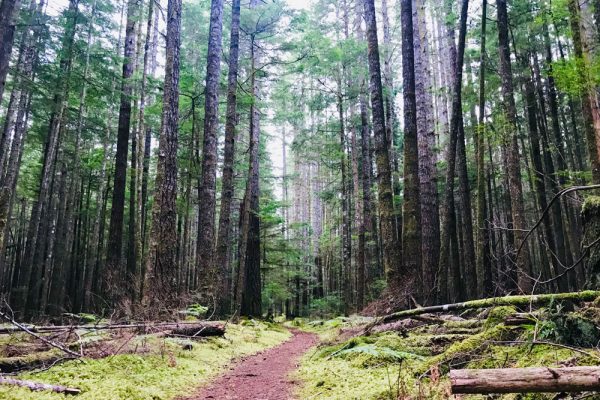 Lush rainforests & trails
Lush rainforests & trails
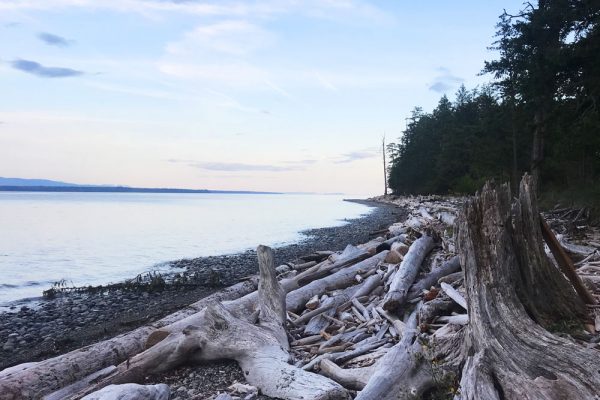 Island shorelines
Island shorelines
- Save Water – Water is a precious resource on Vancouver Island and the Discovery Islands and shortages are common. Please take short showers and use water responsibly to help us keep our water table in good shape.
- Pack It Out – Minimize your waste generation and ensure what you do create is disposed of properly. Follow the signs at the Recycling Depots, use trash receptacles in parks, and take any excess garbage with you off-island.
- Show your Community Spirit – The local grocery stores on Quadra Island donate 1% of their sales to community organizations. Take a look at the Spirit Board when you pay and let them know where you’d like to direct your points. Some of our favourites are the Food Bank and Community Centre.
Responsible travel While on Tour WITH US
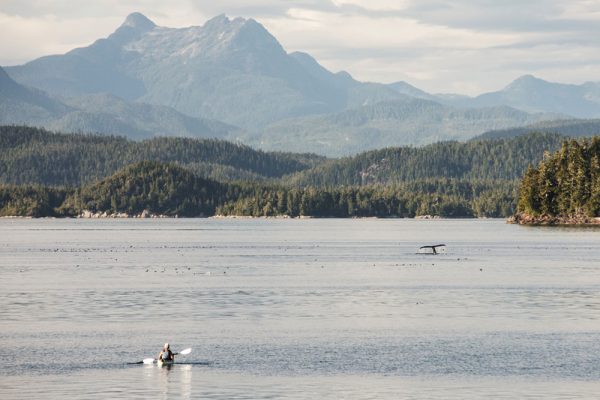 Responsible viewing
Responsible viewing
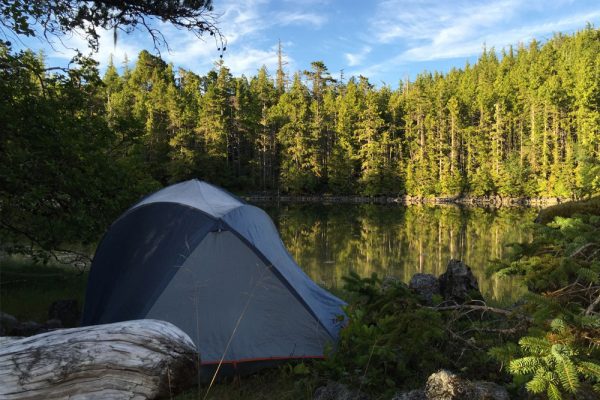 Leave no trace
Leave no trace
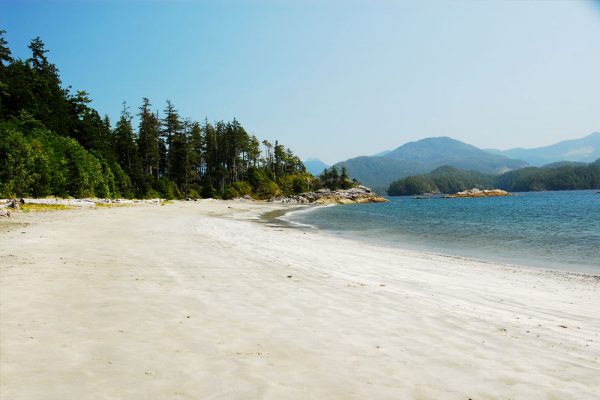 Clean beaches for all
Clean beaches for all
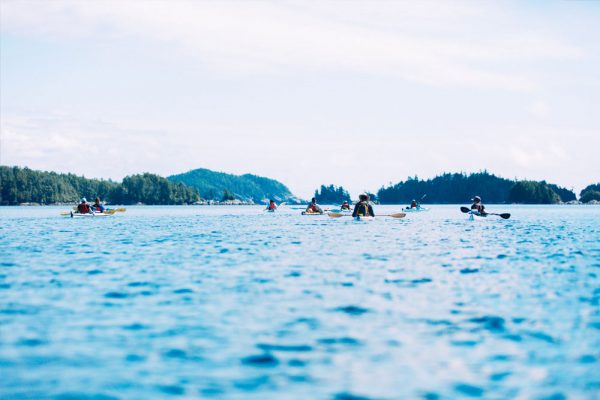 Biodegradable for the sea
Biodegradable for the sea
- Respect All Wildlife – Responsible travel means we do our best to ensure our sightings don’t interrupt the natural behaviour and rhythms of wildlife. We follow the whale-watching regulations which help to keep the whales healthy and leaves a safe distance between us and cetaceans (200m for orcas, 100m for all other cetaceans). To learn more about responsible wildlife viewing, check out the Be Whale Wise Guidelines.
- Leave No Trace – Practice minimum impact camping. Your experienced guides will offer helpful tips and tricks that are best suited to follow responsible travel guidelines in the areas where we camp.
- Pick It Up – If you see garbage or plastic on your journey – pick it up! Plastic is one of the most difficult forms of litter to eradicate from beaches around the world. Even the most pristine areas on Earth are not untouched by plastic and every little effort helps.

